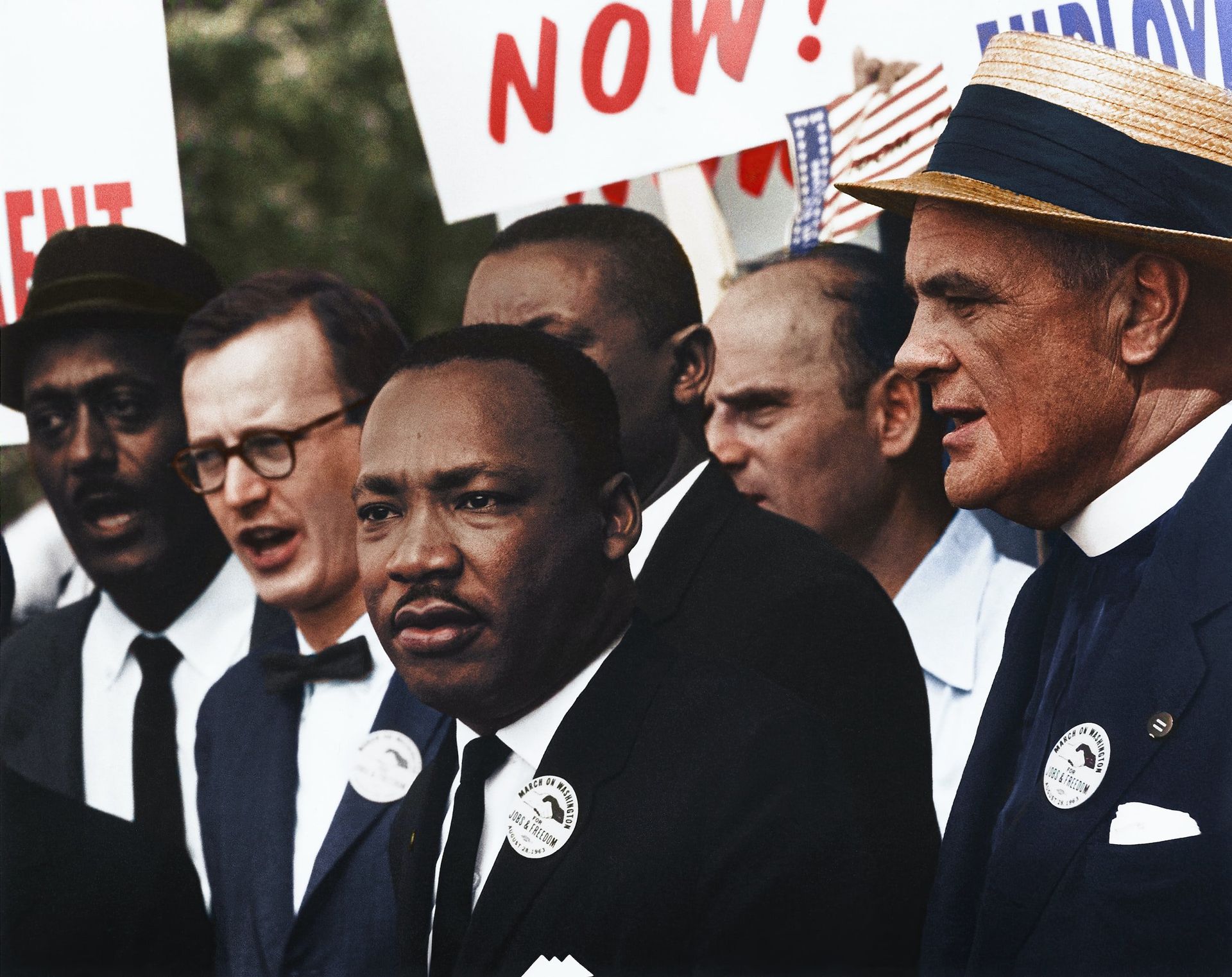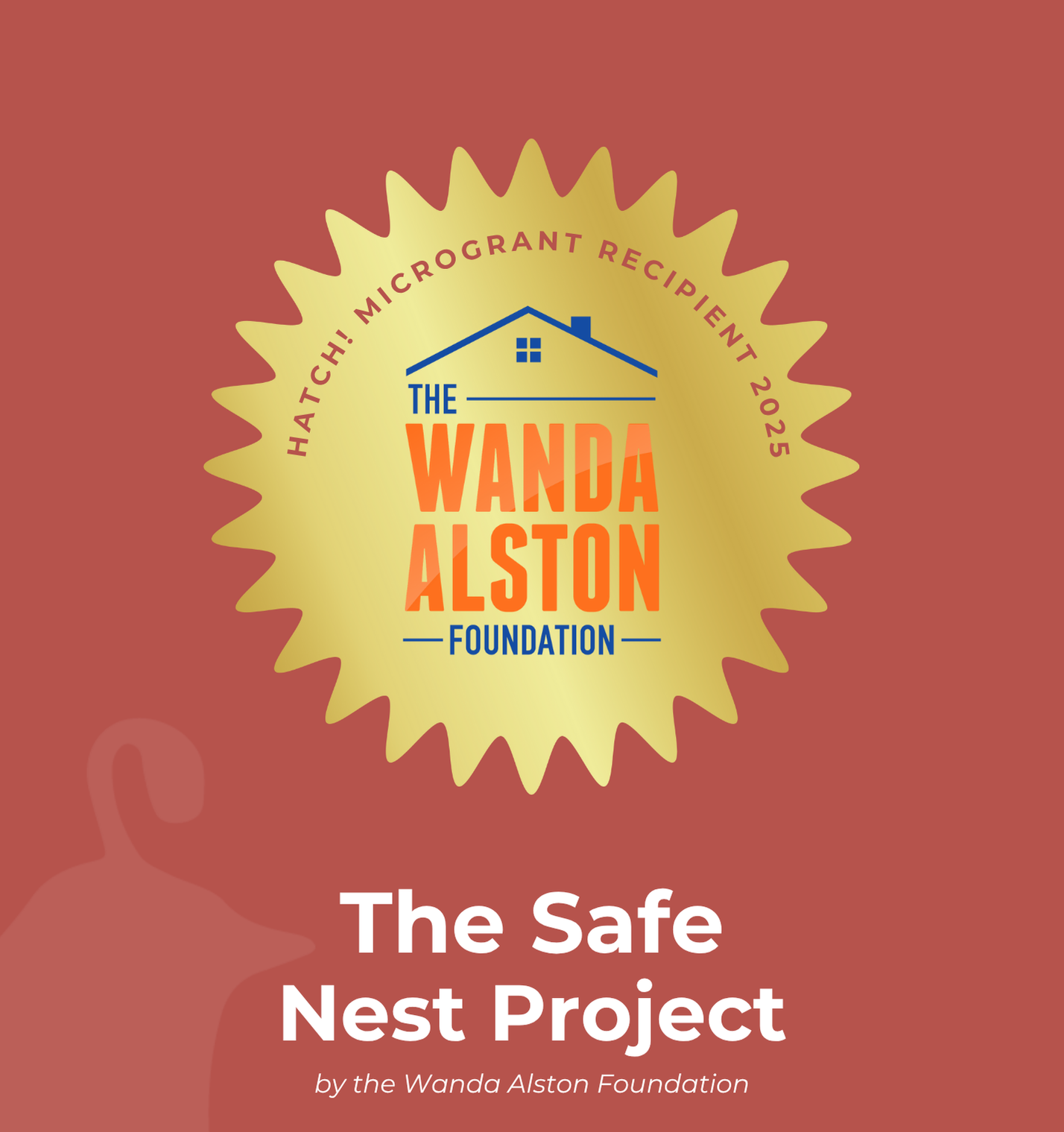Black History Month 2022: Championing Housing Justice
Nest DC
Throughout Black History Month, we highlighted and celebrated Black figures who have advanced the progress of housing justice throughout history to today. We had a wonderful time learning about and sharing these incredible people who greatly inspire the work we do. In case you missed our month-long campaign over on our socials, here’s a wrap-up of those features!This is a subtitle for your new post

DOROTHY MAE RICHARDSON
Dorothy championed quality and affordable housing in her Pittsburgh community and beyond in the 1960s. Richardson realized just how difficult it was to find quality housing options when helping a blind, Black couple search for housing in her community. This experience inspired her to form a community, women-led group: Citizens Against Slum Housing (CASH). CASH was a driving force in holding landlords accountable for improving their property maintenance and creating new housing projects all while including the issue of homeownership in the conversation.
Eventually, CASH transformed into Neighborhood Housing Services (NHS), which continued the mission of CASH. NHS helped thousands of Black residents gain access to low-interest home purchase and repair loans and eventually inspired the mission behind @Neighborworks America, another organization that works to improve communities through accessible housing and still lives on today. Her fight for quality, affordable housing, and bettering communities inspires the work of many, including our Flock.
LISA RICE
Lisa Rice is making a major impact serving as the current President and CEO of the National Fair Housing Alliance (NFHA). Fun fact: NFHA is the country's only national civil rights agency solely dedicated to eliminating all forms of housing discrimination.
Rice's work first began over 35 years ago at a local level in the state of Ohio. From there, she has led a variety of fair housing organizations and has consistently advocated for accessible housing to all. During this time she fought for those that were historically excluded from the market by providing financial support in the way of grants, below-market interest loans, refinances, and more.
While serving NFHA for now well over a decade, Rice has worked to eliminate systemic discrimination in the world of housing. Think: rental, real estate, lending, appraisals, insurance, and more. She is now aiming to target additional issues such as redlining practices, a discriminatory credit market, and the unjust treatment of tenants by landlords. In addition to her contributions through NFHA, Rice is also a published author having participated in multiple books and journals that focus on highlighting fair housing justice issues and what we can do to expand accessibility to all.
MARTIN LUTHER KING JR.
While almost everyone is aware of the influential civil rights work of Dr. King, many overlook his immense impact on housing justice. During this time, the discriminatory legislation in place caused the majority of Black individuals and families to be living in unfit housing conditions and limited their access to quality housing. Dr. King felt that housing justice was a core component in the fight for economic justice.
In 1966, Dr. King co-led the Chicago Freedom Movement to help bring awareness to the racist practices negatively impacting the Black residents in the North, housing included. At the time, Chicago was one of the most segregated cities. During the movement, there were some wins and some losses. Protests turned violent and anti-discriminatory practices were put in place. While many felt that the outcome of the Chicago Freedom Movement was insignificant, others feel that it directly contributed to the passing of the Fair Housing Movement just a mere two years later.
The Fair Housing Act of 1968 was signed into law on April 11th,1968, just one week after Dr. King's assassination. The Act prohibits discrimination in regards to the sale, rental, and financing of housing based on race, religion, national origin, sex, (and as amended) handicap, and family status. Dr. King's work undoubtedly contributed to the passing of the Fair Housing Act and forever changed the lives of so many. The fight for true fair housing lives on, but we are so grateful for Dr. King's contribution to how far we have come.
ALANNA MCCARGO
Alanna McCargo spent a little over 5 years of her career working as the VP for the Housing Finance Policy Center at
Urban Institute, a non-profit research organization dedicated to providing data and evidence that supports economic growth and a more equitable future for families and communities. During her time at Urban Institute, McCargo focused her research efforts on reducing the racial homeownership gap, generating wealth equity, and eliminating the countless barriers to homeownership.
Credible research is essential in advocating for solutions to issues such as the racial homeownership gap. The work of McCargo and her team has played an important role in shaping the data around this particular issue and influences the decisions of countless policymakers right here in DC. McCargo moved on from Urban Institute but still works in housing security and community development. McCargo’s research has influenced the decisions of many, and we are so thankful for all she has done to progress this challenging issue.
HILYARD ROBINSON
Hilyard Robinson (a native Washingtonian!) earned his degree in architecture from Columbia University and was the first Black person to do so. After studying housing projects in several countries, he returned to the US to focus on socially-conscious design. He emphasized a thoughtfully designed space's influence on the residents. Robinson is most well-known for his contribution to
the Langston Terrace Dwellings, DC's very first federally-funded public housing program. This program was implemented as part of the New Deal and aimed at low-income Black families in the District. The building is named after John Mercer Langston, a congressman and the founder of Howard University Law School.
After Langston Terrace, Robinson designed many more public housing projects, educational buildings, and even airfields. What set him apart from other architects was his tendency to keep the community in mind while designing. He had a way with both design and people, making his work so special.
Though Robinson passed away in 1986, his influence lives on to this day. On June 4, 2021, Columbia University announced a scholarship program in honor of Robinson called the "Hilyard Robinson Scholars Program" offering full-tuition scholarships at the university's summer architecture and planning programs. The scholarships are specifically intended for undergraduate students currently enrolled in historically Black colleges and universities, hoping to promote inclusion and diversity in a field that historically under-represents Black individuals.
TIA BOATMAN PATTERSON
Tia's story is special as she experienced the grave impact of homeownership firsthand. As a child, she and her family experienced homelessness. As a single mother, her mother could not legally take a mortgage out in her own name. With the help of the Fair Housing Act, in addition to a first-time homebuyer program, that barrier was removed, and her mother could purchase her first home. Finally, owning a home allowed Patterson's mother to break generational cycles of poverty, which had a significant trickle-down effect. It allowed Patterson and her sister to go to school and get multiple degrees later in life.
Patterson has gone on to serve in various roles that focus on housing, community, and economic development. As the executive director of the California Housing Finance Agency (CalFHA) since 2014, she has worked towards making housing more accessible while decreasing California's homelessness rate. CalFHA was created in 1975 to help lower-to-moderate-income Californians find homes across the state. Patterson aims to help as many families as possible achieve the goal of homeownership while also ensuring historically underserved folks have access to safe, secure, and sanitary housing. She works at both a state and federal level to examine the barriers within the housing system that hinders the ability of BIPOC to become homeowners so those barriers can be broken down through systemic policy changes. Patterson and her team have made some serious progress in the housing world, and we look forward to seeing the continued impact.
We’re so grateful to these amazing Black figures for all their impactful work to advance housing justice. Though Black History Month is ending, being an ally to today's civil rights movement is a lifelong commitment, and there’s always more to learn.
Stay tuned as we gear up for Women’s History Month and continue some of these important conversations through a different lens!










